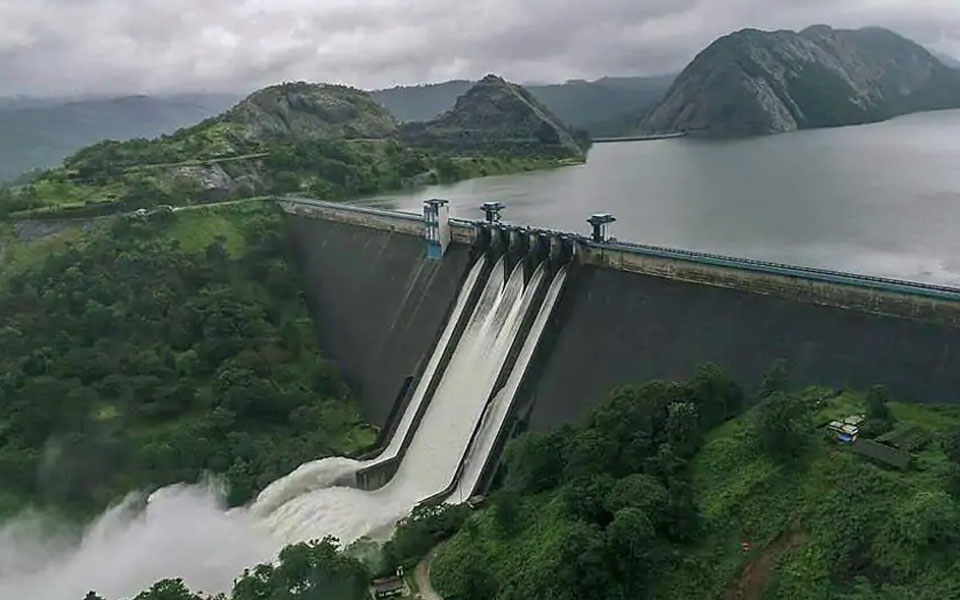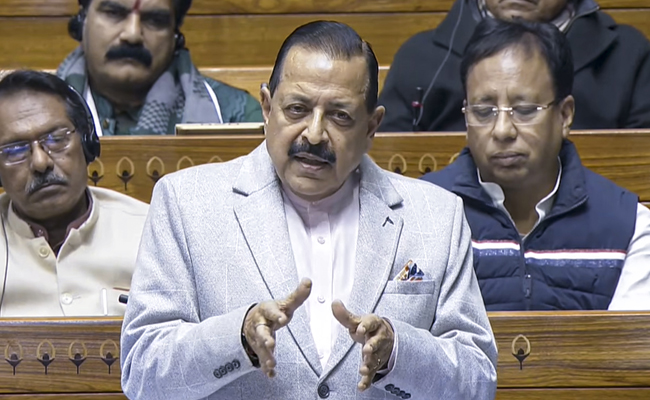New Delhi : As Kerala faces its worst floods in several decades, the author of a landmark report on the conservation of the Western Ghats said Sunday that the scale of the disaster would have been smaller had the state government and local authorities followed environmental laws.
Scientist Madhav Gadgil, who headed the Western Ghats Ecology Expert Panel formed by the Ministry of Environment and Forests in 2010, said at least a part of the problem in Kerala was “man made”.
“Yes, there is an intense rainfall event which has caused this. But I am quite convinced that the last several years’ developments in the state have materially compromised its ability to deal with events like this and greatly increased the magnitude of the suffering that we are seeing today. Had proper steps been taken, the scale of the disaster would have been nowhere near what it is today,” Dr Gadgil told The Indian Express.
In its detailed report submitted in 2011, the Gadgil panel had suggested measures for the preservation of the natural environment of the ecologically fragile Western Ghats region. The report had recommended that the entire Western Ghats, spread over six states, including Kerala, be declared ecologically sensitive — and had assigned three levels of ecological sensitivity to regions within the Ghats.
The committee had strongly recommended a ban on certain new industrial and mining activities in the area, and called for strict regulation of many other “developmental” works in consultation with local communities and gram panchayats.
The report met with resistance from the governments of all six stakeholder states. Thereafter, the Environment Ministry appointed another panel, headed by space scientist K Kasturirangan, to “examine” the Gadgil committee report in a “holistic and multidisciplinary” fashion, while considering the objections raised by the state governments and responses received from others. The Kasturirangan committee, which submitted its report in 2013, severely watered down the recommendations of the Gadgil panel, effectively suggesting that only a third of the Western Ghats be identified as being ecologically sensitive.
After protracted consultations with the state governments, the Environment Ministry last year notified some 57,000 sq km of the Western Ghats as an ecologically sensitive area, in which all mining activities, large constructions, thermal power plants, and highly polluting industries were banned.
Of the area that was finally notified, only 9,993.7 sq km was in Kerala, after the state government objected to the 13,108 sq km that the Kasturirangan committee had identified as ecologically sensitive in the state.
“In fact, it is not even a question of the report not being accepted or the recommendations being ignored. If the governments had just followed the law, if there was good governance, a disaster of this proportion could have been avoided,” Gadgil told The Indian Express.
“Unfortunately, our state governments are in the grip of, and in collusion with, vested interests that do not want any environmental laws to be implemented, and the local communities to be empowered. Our recommendations would have been accepted in any law-abiding society that believes in good governance. Unfortunately, we have a lawless society and extremely poor governance,” Gadgil said.
In particular, Gadgil pointed to the increasing stone quarrying activity in Kerala, along with largescale construction.
“There has been a proliferation of illegal stone quarrying all over the state. In 2013, after we had submitted our report, there were many demonstrations against stone quarrying in Kerala. In one of the demonstrations, in Kozhikode district, I think, the stone quarrying mafia organised stone pelting against the demonstrators. One boy had died in that incident. Nobody was brought to book. People realised they were going to be completely suppressed. Stone quarrying has become more and more rampant after that, and in the last few years it has exceeded all limits. Activities like these certainly contribute to the magnitude of the damage that has been caused by this (flooding) event,” he said.
“In terms of unregulated growth of illegal constructions, and creation of real estate all over, there are disturbing parallels (in Kerala) with Uttarakhand,” Dr Gadgil said. “These are not just natural events. There are unjustified human interventions in natural processes which need to be stopped.”
A cloudburst in 2013 had brought catastrophic destruction to Uttarakhand, triggering massive landslides and flash floods, and killing close to 6,000 people.
The Gadgil report had pointed out that many reservoirs in the Western Ghats states, especially those in the steep valleys, were silting up prematurely due to massive encroachment and deforestation of catchment areas. “Idukki dam is a classic case wherein the entire catchment was encroached along the dam construction,” the report said.
“The operations of hydroelectric stations (reservoir operations) are in tune with the power needs rather than downstream water needs. Hence, daily flow fluctuations created by peak and offpeak operations of reservoirs in dammed rivers have led to upstream-downstream conflicts in many river basins. Similarly, diversion of flows into another river basin after power generation is creating problems of daily flood in the recipient basin and drought in diverted basins,” it said.
courtesy : indianexpress.com
Let the Truth be known. If you read VB and like VB, please be a VB Supporter and Help us deliver the Truth to one and all.
New Delhi (PTI): Lok Sabha on Wednesday passed the nuclear energy bill with Union minister Jitendra Singh asserting that it would help India achieve its target of 100 GW atomic energy generation by 2047.
The Sustainable Harnessing and Advancement of Nuclear Energy for Transforming India (SHANTI) Bill, which seeks to open the tightly-controlled civil nuclear sector for private participation, was passed by voice vote amid a walkout by the opposition.
Singh termed the bill a "milestone legislation" that will give a new direction to the country's developmental journey.
"India's role in geopolitics is increasing. If we have to be a global player, we have to follow global benchmarks and global strategies. The world is moving towards clean energy. We too have set a target of 100 GW of nuclear energy capacity by 2047," he said.
The opposition contended that the bill diluted provisions of the Civil Liability for Nuclear Damage Act, 2010 that passed on the liability for a nuclear incident on to the suppliers of nuclear equipment.





